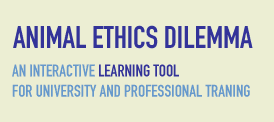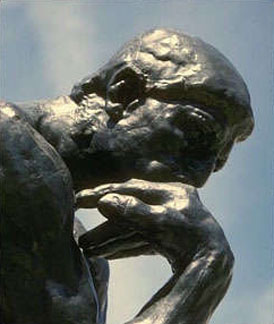

 |
| |
|
The Animal Rights View
|
|
”Good results cannot justify evil means” |
|
| Defenders of animal rights believe that fixed ethical rules place limits on our treatment of animals: there are some things that we are not permitted to do to an animal whatever the circumstances. This idea, of a non-negotiable prohibition, is what people are getting at when they talk about “animal rights”. It is one thing to say that animals have rights, and another to say what these rights are. This means that the animal rights view comes in more or less radical forms. Most radically, a defender of animal rights may hold that animals have rights just like our human rights. Obviously, this view would exclude uniquely human rights, such as the right to freedom of speech. However, it would include the right not to be killed for human benefit (except in self-defence.) At the other end of the range, the claim may be merely that animals have the right to be treated “with respect” or “humanely”: roughly speaking, we must not do avoidable harm to animals. Weaker views of this kind need not rule out livestock farming and animal slaughter. There is a vivid contrast here with utilitarianism, since utilitarians believe that, in maximising welfare or happiness, it may be morally acceptable to violate what the defender of rights would call “rights”. Examples of statements typically made on the basis of this view: “Animals are not our slaves.” “Animals have inherent value, and this should be respected.” “Experiments on animals are unacceptable, regardless of the potential benefits involved.” |
|
|
|
|